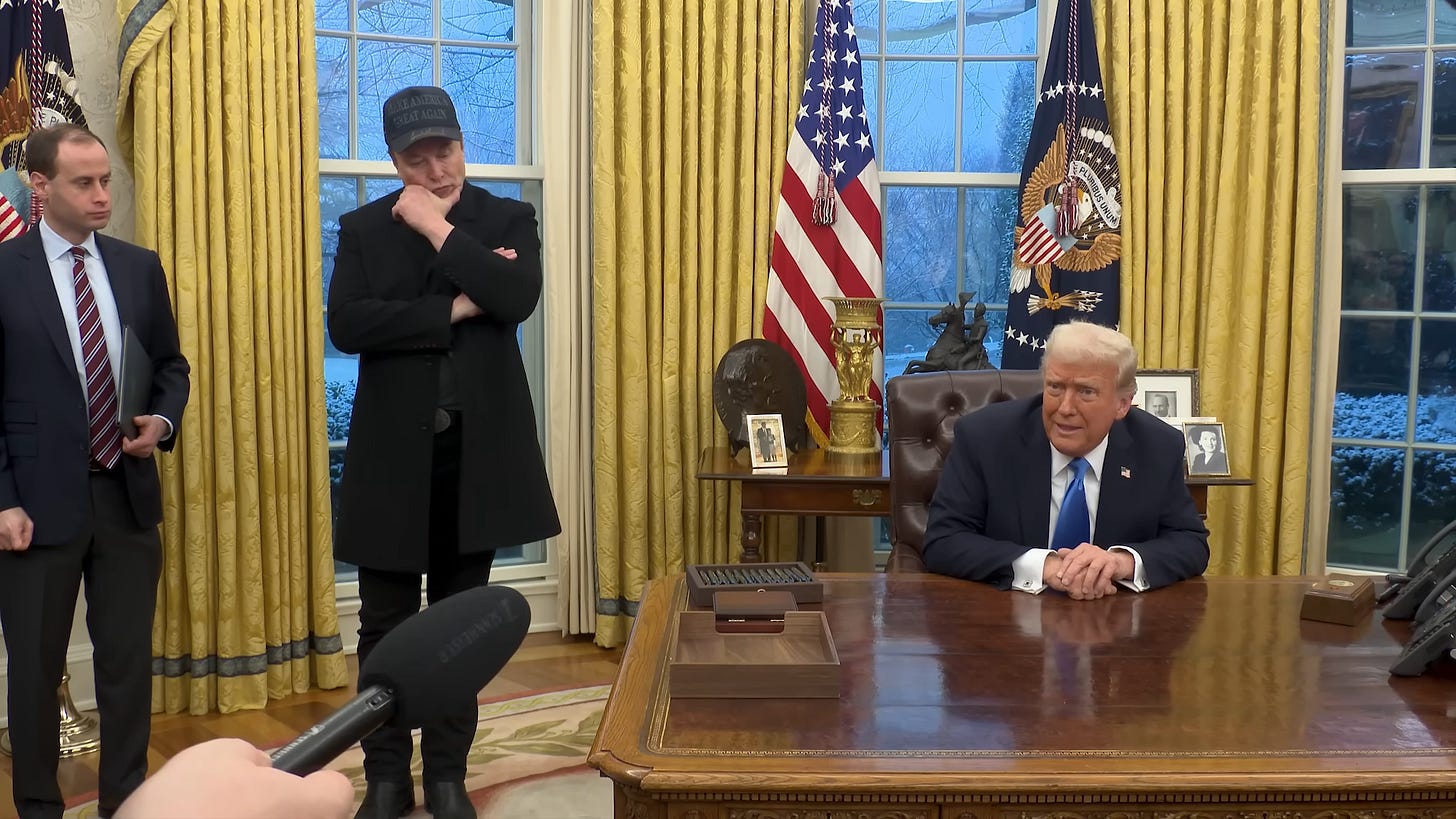Trump's Government Firings Ramp Up
Plus, Argentina's Milei is being investigated for pushing a crypto scam, and Mike Gallagher says the quiet part out loud about Israel's role in the TikTok ban.

Dispatch from Below is a digest delivered every Monday and Thursday, highlighting what I find to be the most interesting stories covering politics, working class struggles, and current events, along with my own brief commentary.
You can get it delivered to your inbox every weekend by subscribing.
The most notable story from this weekend has to be Trump’s escalation in firings, targeting hundreds of thousands of workers across government agencies in a move that is sure to hamstring many vital government functions. Read about this and more below:
🇦🇷💰 Argentine President and Trump ally under investigation for promoting a crypto scam
Notably, on the eve of his inauguration, Trump launched a meme coin that he and his affiliates own an 80 percent stake in.
🇮🇱📵 Former Congressman Mike Gallagher says that the TikTok ban was primarily motivated by a desire to control messaging for Israel
At the Munich Security Conference, Senator Mark Warner and former Congressman Mike Gallagher confirmed what many had suspected for some time: that the TikTok ban was accelerated by a desire to control messaging around October 7th and Israel’s punitive campaign of bombardment on Gaza.
The linked article outlines a long series of revelations and leaks from the past year and a half that have long affirmed this notion, including accounts from and about high-ranking Israeli diplomats expressing discontentment with the platform.
🇺🇸🔥 Trump fires huge swaths of probationary employees across the federal government, including nuclear safety officials
This weekend, Trump directed agencies to fire nearly all probationary (generally meaning hired within the last few years) employees who’d not yet received civil service protection, with warnings of more cuts to come. Civil service protection grants civilian, non-partisan employees in the federal government the assurance that their hiring and firing would be based on performance-based assessments, not partisan whims. While probationary workers are easier to fire than tenured staff, the reasoning still must be rooted in performance-oriented evaluations, which is impossible to claim for a sweeping mandate like this affecting hundreds of thousands of workers simultaneously.
The logic here is likely rooted in reducing operating costs and the notion that people seeking employment under Biden are potentially more sympathetic to the Democratic Party.
Amongst those workers impacted include 300 officials who oversee the safety of nuclear weapons programs (who the Trump administration subsequently attempted to rehire upon realizing their blunder).
Towards the end of Trump’s first term, he implemented a provision known as Schedule F, which essentially carved out a new category of civil servant employment that stripped non-partisan protection away by requiring loyalty to the administration. He and his new Office of Management and Budget chief have expressed plans to reimplement Schedule F, which would functionally allow Trump to fire whomever he pleases across the federal government. It’s also worth noting that it will be difficult for future administrations to rebuild these agencies, as hiring is much more difficult than firing, especially in the public sector, where wages are not always as competitive as private counterparts for similar work.
Most likely, Trump will pull any levers he can to eliminate, cripple, or vacate government agencies wherever possible, except those that directly benefit his greatest benefactors in the corporate world. The administration appears to be pulling directly from Argentine President Milei’s scorched earth anti-government playbook, who has overseen a meteoric rise in Argentina’s poverty rate from around 25 to over 50 percent, potentially a sign of things to come here in the U.S.



